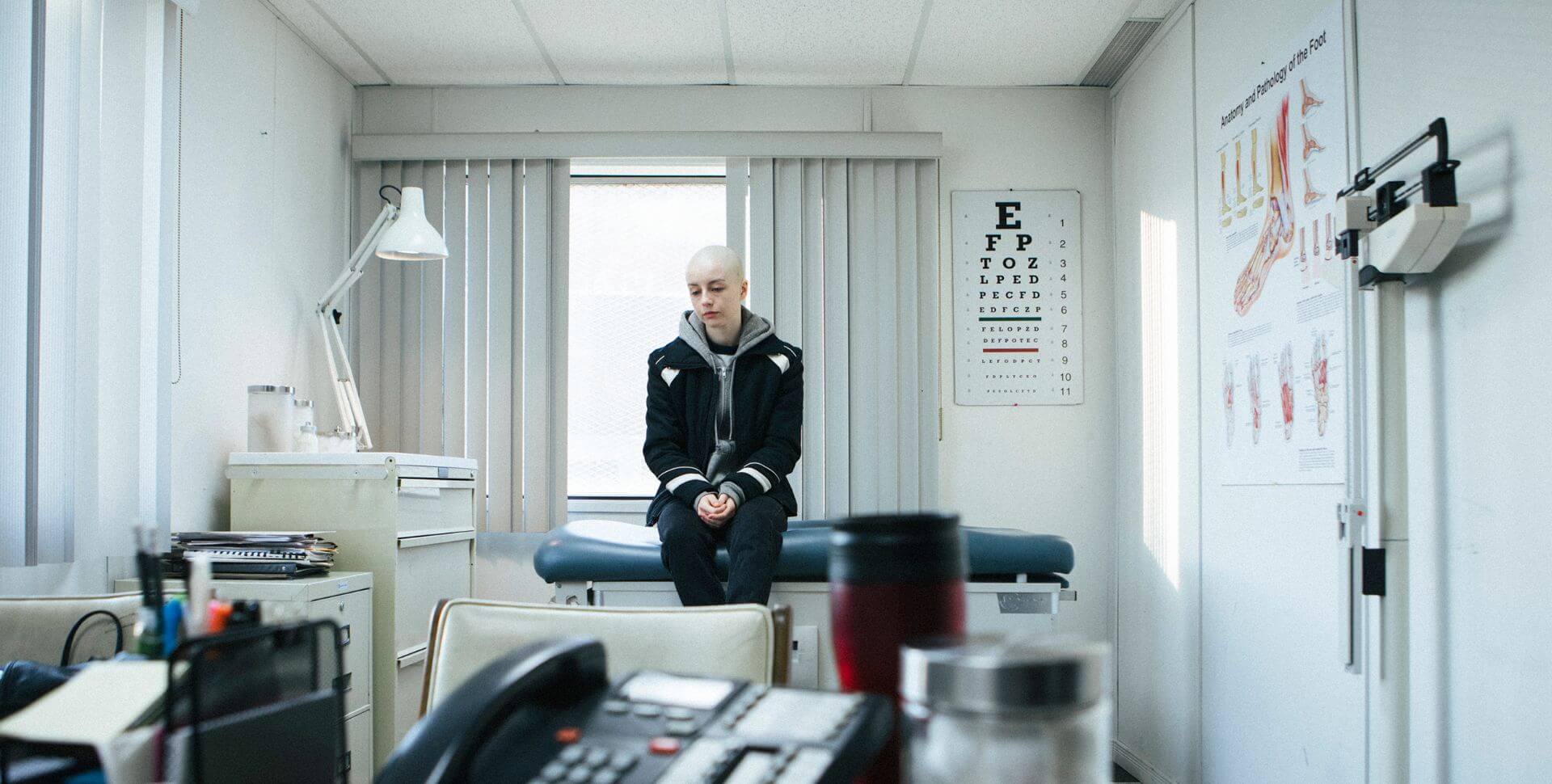White Lie is a 2019 drama film about a popular university student, Katie Arneson who gets caught up in an intricately woven lie. She tells everyone that she has cancer and struggles to keep this falsehood under wraps. Written and directed by filmmaking duo Yonah Lewis and Calvin Thomas, White Lie hit various digital streaming platforms on January 5th, 2021.
The ethics and the characters. The film lives in a very ethically weird place. The characters are unnerving because you know they do exist out there somewhere. Not just Katie (the protagonist), but the various personalities who help her in exchange for compensation. White Lie doesn't pass judgment on any of these characters — it simply presents them. Judgment is your job. It's essentially a heist thriller, where we're rooting for the bad guy. Katie is admirable despite her despicable actions. She’s a Walter White (of Breaking Bad); selfish and clearly doing a bad thing, but because she can pull it off, you want her to. She’s quick on her feet and a decent planner. We judge her on her actions, but still don't want her to stop. You can admire her strengths and also look down on her weaknesses. Our main character Katie is psychologically complex and extremely well-written. The film hints at her psychosis but does not preoccupy itself with it, as it's decidedly not germane to the story.

The female protagonist and feminism. Katie is a morally-corrupt female protagonist. We, as audience members are no strangers to the “unlikeable” male protagonist (See: Walter White). Usually, women are rarely given the opportunity to be so duplicitous on screen. When women are written to be unlikeable, they fall into the “nasty woman” trope. The "nasty woman" is a supporting character who nags on the male protagonist’s antics or fun because she’s a shrewish wife or mother. Their entire character is predominately based around her need to ruin those antics. However, Katie is not attached to men in this film. She stands on her own as a woman and as a three-dimensional character. Katie has a father, but he takes the place of the “nasty woman” — in this case, trying to convince Katie to stop. The film is kind enough to portray a woman in all her human and moral failings. White Lie is a feminist film.
The acting and performances. Katie Arneson is played by Kacey Rohl. She looks the part of the 'sweet cancer diagnosed poster child,' and it's definitely partly due to how she was able to successfully stay believable. This is a perfect example of how casting affects a film. Each character is ideally cast for their role — they look the part and fully put themselves into the role. As a result, we're able to be completely enveloped in the story, and truly believe each actor to be the characters on the screen. My personal favorite is the main character’s girlfriend, Jennifer Ellis (played by Amber Anderson,) as I very much saw myself and my friends in her. The performances are strong and it’s the bow on top of a beautifully wrapped present.

The score and ambiance. The film’s score is spectacular — it lets us know immediately that something more sinister is happening, despite the seemingly normal images we're being shown. The main song utilizes piano and electric guitar to produce an unsettling sound that fits the subject matter to great effect. Other sounds have a simple, monotonous draw to them which is both disquieting and beautiful. It’s memorable and reminds me of the scores for films such as The Killing of a Sacred Deer (2017) or even Raw (2016). The music is perfectly paired with the editing choices. No wonder, the editor and composer of the film is the same person, Lev Lewis. Despite the editing and music leaving such an impression on me, they weren't an overbearing presence.
White Lie is a film that plays into the idea that people believe what they're told...until they're told something else.

Watch White Lie now
